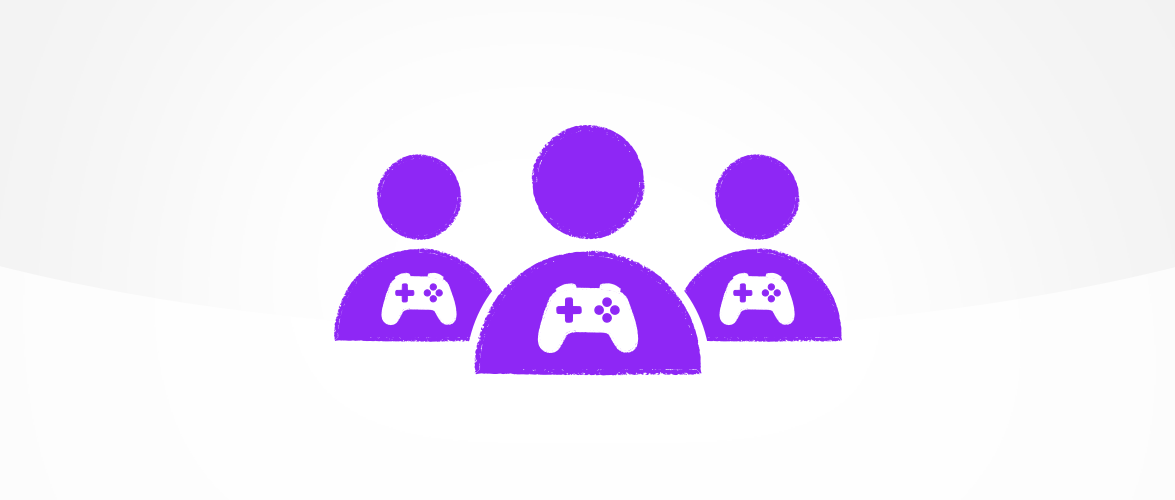Gaming communities
For lots of children and young people, gaming is more than just a pastime – it’s an activity that allows for socialising, creativity and even the opportunity for a career.
So how can you keep up with the positives of these communities while ensuring that children stay safe? Here’s everything you need to know.
![]()
What are gaming communities?
Gaming is a passion that unites people from across the world. Meeting fellow fans in-game is common, but to really develop friendships and be a part of the wider community around a particular game, players tend to move into different sites that focus more on chatting about their experiences.
Gaming communities are facilitated by external sites that offer gamers a place to connect with one another and share advice and inspiration.
Where do these communities meet?
Reddit and Discord are perhaps the two sites most associated with social gaming communities. Reddit has hundreds of gaming threads where users discuss tips and tricks, recommend different games or just share a gaming experience.
Discord is by far the most popular external chat platform for gamers, primarily because it allows for easy, high quality voice and text chat mid-game. This makes it an easy social space for friends to communicate whilst playing.
There are hundreds of subject-based servers on Discord, covering all kinds of different topics. This means that it’s also a popular space to find new communities outside of gaming.
Keep in mind that both Reddit and Discord have an age rating of 13+.
What kinds of activities do gaming communities facilitate?
Socialising
The main advantage of gaming communities is that they provide a social space for players. These spaces can become important support and social networks - and were particularly invaluable for young people living through isolation during the Covid-19 pandemic.
For young people struggling to make friends at school or in-person, gaming communities can be a space where they feel comfortable. Being part of a community that reflects what they love and are good at doing is a great way to boost confidence.
Live-streaming and videos
Live-streaming gameplay is another big draw for gaming communities. Watching professional gamers live-stream can help players develop their own skills or find creative inspiration – or they can just be exhilarating to watch.
Twitch rose to fame as a video game live-streaming service, and while it now offers a range of different content, a large proportion of its channels are still gaming live-streamers. The service brings professional gamers and their fans together, allowing fans to support streamers in real-time.
Another place to watch these clips (including live streams) is YouTube, which has a huge gaming presence. There are videos explaining everything from how to build a replica Taj Mahal on Minecraft to getting through some tricky challenges on PUBG. Many YouTubers have channels dedicated to gaming, either exploring different games or depicting the opening of loot boxes (more on these below). Being a gaming YouTuber can also be an exciting career opportunity for young people.
Both YouTube and Twitch have an age rating of 13+.
Play-to-earn
One of the more recent features of gaming communities is the ability to make money. Esports – games played competitively between two or more players – have been a popular way for people to pursue a career in gaming. Many esports are also played in teams which give them an additional community aspect.
Esports competition events can be very high profile and successful competitors can earn a lot of money. The biggest esports earner of all time is Johan Sudstein, who by 2021 had made over $7.4 million.
The rise of crypto-gaming has also given gamers even more opportunity to make money. Games like Axie Infinity or Splinterland allow players to make crypto tokens just through gameplay (although you have to initially invest a portion of a cryptocurrency).
Generally speaking, crypto-games have an age rating of 18+ because of the possible financial risk.
Listen to Parent Zone's podcast, Tech Shock.
What are the risks?
Age restrictions
Nearly all of the external sites that facilitate these communities are rated 13+, and some have an older age rating. Keep in mind that even if a child is 13 and using these sites, they could be communicating with much older users.
This could leave them vulnerable to experiencing bad language or other inappropriate comments. If you think that your child might not be ready for this or are worried about the risks, maybe encourage them to stick to the gaming platforms themselves.
Racist/misogynistic culture
In 2014, the harassment campaign known as Gamergate was taken up by users of Reddit and the image-board website 4chan. Users coordinated online attacks – including doxxing (the publication of someone’s personal details online), death threats and injury threats – directed at game developer Zoe Quinn, who they felt had introduced overly liberal politics to the gaming community through creating the game Depression Quest. This resulted in lots of women and girls feeling ostracised from the gaming communities they were once a part of.
While significant work has gone into rectifying this – with lots of Reddit pages dedicated to women discussing their gaming experiences – there is still a culture in lots of these communities that gaming is an elite experience with no room for women or any other marginalised groups.
In more recent years, the gaming platform Roblox – which allows users to create their own games – has seen games based on the Christchurch Mosque shooting as well as Nazi role-playing games. Roblox has removed these games and increased its moderation, but there is always the possibility of new games in this style being created.
Despite reports into gaming leading to alt-right radicalisation, such cases are very rare. Nonetheless, it’s a good idea to keep an eye on the kinds of community your child is involved in, and ask them about the opinions they are seeing expressed there.
Pressure to spend
Gaming communities can put a lot of pressure on children and young people to spend money. Other players or streamers may have the most up-to-date weapons and ‘skins’ (cosmetic additions to a character) which can leave players without these things feeling left out.
Many games offer loot boxes – virtual “treasure chests” that you have to pay real money to open. While they’re not necessarily essential, the contents do make the games easier and quicker to play. The use of loot boxes has been shown to promote gambling-like behaviour in children.
What can parents do?
Explore safety settings and reporting/blocking functions
Starting friendships through gaming communities is a great feature of online life, but it’s important to remember that external channels may have different safety settings and age restrictions, and that they aren’t all suitable for talking with someone you don’t know in person.
Make sure that your child understands the risks of moving to a different platform and that they don’t message people they don’t know on other platforms which aren’t monitored by moderators (for example, encrypted messaging apps or other private messaging channels). Remember that it is significantly harder to respond to instances of harassment or abuse on these kinds of platforms.
Stay involved in your child’s communities
Despite the stories of toxic behaviour within some gaming communities, they are usually an overwhelmingly positive space for young people to bond over shared passions and interests.
Be sure to keep up a conversation with children about any communities they are involved in and continue to take an interest in whatever games they are playing.
If you are concerned about a child getting involved in intolerant or otherwise unpleasant communities, explore this further with them and explain to them that games and their surrounding communities that victimise players are hurtful and inappropriate.
Spot something that doesn't look quite right? You can email librarian@parentzone.org.uk to submit comments and feedback.
This article was last updated on 06/04/23.


